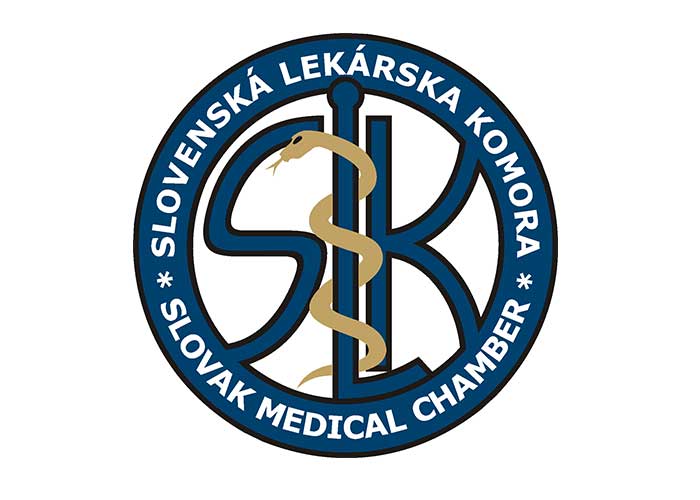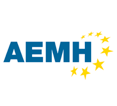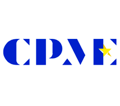2021
Európska komisia pripravila dokumenty k vakcinácii v SR
Pozvánka na webinár WHO (30.11.2021)
Stratégia EÚ v oblasti verejného zdravia po pandémii COVID-19
New WHO guides on screening
- Programy skríningu: krátky sprievodca na zvýšenie účinnosti, maximalizáciu výhod a minimalizáciu škôd (2020) - Zverejnenie Regionálneho úradu WHO pre Európu
- Skríning. Kedy je vhodný a ako dosiahnuť správny výsledok - Stručný prehľad OBSERVATORY (2020)
Európska stupnica na kontrolu tabaku 2019
Asociácia európskych líg proti rakovine po troch rokoch opäť vyhodnotila situáciu v kontrole tabaku v európskych krajinách. Analýza podčiarkuje najmä nedostatočné financovanie kontroly tabaku.
V pripade Slovenska, ktoré skončilo na 32. mieste sa konštatuje : “No progress to report since 2010.”
Implementácia kultúry zdravia jednotlivca do vysokoškolského vzdelávania s cieľom riešiť súčasné a budúce zdravotné problémy
The professional and student organisations representing medical doctors, dentists, pharmacists and veterinarians in Europe call on policy makers, academics and professionals to promote an interdisciplinary exchange under the One Health (1) approach in education.
The European organisations are committed to organising regular roundtables in different European regions to debate the need to update current curricula and promote interdisciplinary collaboration in undergraduate education. The aim is to bring together interested parties in specific country clusters to raise awareness and share experiences.
In December 2019, a second roundtable hosted by the Polish Chamber of Physicians and Dentists in Warsaw brought together more than 50 participants from the Czech Republic, Hungary, Poland and Slovakia.
The representatives of the four countries recognised that the integrated education of all future health professionals is fundamental for tackling current and future health challenges. They agreed on the importance of supporting joint initiatives at national level to further implement the One Health approach. Moreover, it was remarked that any change at university level is possible only if educators are committed to encouraging interactions among students of different disciplines.
Please find the full report on the open debate here.
(1)
The Council of European Dentists (CED)
The Standing Committee of European Doctors (CPME)
The Federation of Veterinarians of Europe (FVE)
The Pharmaceutical Group of European Union (PGEU)
The European Dental Students Association (EDSA)
The European Medical Students’ Association (EMSA)
The International Veterinary Students’ Association (IVSA)
The European Pharmaceutical Students' Association (EPSA)
Spojené kráľovstvo a spolupráca po vystúpení z EÚ
Koronavírus - stav núdze bol vyhlásený
WHO Director-General declared that the outbreak of 2019-nCoV constitutes a PHEIC and accepted the Committee’s advice and issued this advice as Temporary Recommendations under the IHR.
Country health profiles
http://www.euro.who.int/en/about-us/partners/observatory/publications/country-health-profiles
Konferencia Clean Forum 2019
Čo je dôležitejšie ako životné prostredie?
Na úvod jeden zarážajúci fakt – vedeli ste, že je u nás 23-krát viac úmrtí z dôvodu znečisteného ovzdušia než z dôvodu dopravných nehôd? Aj toto odznelo na konferencii Clean Air Forum 2019 koncom novembra v Bratislave.
Poprední predstavitelia Európskej únie a národných štátov v hlavnom meste diskutovali o potrebe zlepšenia kvality ovzdušia. V úvodnom predslove sa predstavili mimo iných aj Karmenu Vella – maltský eurokomisár pre životné prostredie, László Sólymos – minister životného prostredia SR a poradca prezidentky SR Zuzany Čaputovej.
Zhodli sa na tom, že legislatíva pre ochranu životného prostredia je účinná len čiastočne a inštitúcia robia nevýrazné opatrenia na zlepšenie tohto stavu. Problémom je predovšetkým implementácia prijatých opatrení do praxe, najmä preto, že plány a opatrenia sú iba na papieri, ale sú nenaplniteľné v praxi. V národných opatreniach je síce vidieť pokrok, no žiaľ, stále je to veľmi málo. Problémom nie je samotné životné prostredie, ale priemysel, poľnohospodárstvo a najmä doprava. Na to nadviazal na druhý deň na konferencii aj primátor Bratislavy Matúš Vallo, ktorý pripomenul, že kľúčová priorita je verejná doprava (napr. vytváranie špeciálnych pruhov na cestách pre vozidlá verejnej dopravy), ktorá by mala byť ľahko dostupná, čistá, rýchla a bezpečná.
Životné prostredie a zdravie sú spojené nádoby
„Zlyhanie nie je možné, je to totiž otázka života a smrti“ povedal Karmenu Vella. Už spomínané číslo z úvodu o úmrtiach v dôsledku znečistenia životného prostredia sa totiž netýka len Slovenska. V celej EÚ je tento problém najčastejším dôvodom predčasných úmrtí.
Znečistené ovzdušie je napríklad jeden z hlavných dôvodov, prečo ľudia trpia astmou. Ultrajemné častice sa nezachytia v dýchacích cestách, ale sa šíria krvou a usadzujú v celom tele. Spôsobujú tzv. neurotoxicitu organizmu, ktorá sa prejavuje podráždením, zápalmi a môže vyústiť do závažných srdcovo- cievnych a dýchacích ochorení. Veľa ľudí, ktorí trpia srdcovo- cievnymi ochoreniami, ani netušia, že ich problémy sú spôsobené najmä znečistením ovzdušia. „Je dôležité informovať lekárov, ktorí by následne mali vyvíjať tlak na kompetentných s cieľom zlepšiť túto situáciu,“ odznelo na konferencii. Znie to ako klišé, ale situácia je najhoršia v centrách miest, preto jedným z možných riešení, ako stav čiastočne odľahčiť, je budovanie bicyklových stojísk pri vlakových staniciach, čo vo významnej miere odľahčilo dopravu v mestách a v konečnom dôsledku aj znížilo škodlivé emisie.
Na záver len jeden citát, ktorý na konferencii zaznel: „Ak si myslíte že ekonomika je dôležitejšia ako životné prostredie, tak skúste zadržať dych počas toho, kým si počítate svoje peniaze.“
FOTOGALÉRIA
Text a foto: Bc. Róbert Karper – tajomník stáleho výboru pre zahraničie
WHO Barcelona Course on Health Financing for UHC
Options to Foster Health Promoting Health Systems
The expert panel on effective ways of investing in health have drafted a preliminary/draft opinion on options to foster health promoting health systems. This Opinion considers what progress has been made in implementing health promotion within the EU region, and considers what mechanisms can be used for strengthening the integration of health promotion within health systems. Current conceptual and policy frameworks for health promotion are outlined, and the rationale for the development of health promotion and its continued relevance within the context of current policy objectives.
More at:
https://ec.europa.eu/health/expert_panel/sites/expertpanel/files/023_taskshifting_en.pdf
WHO Europe má nového riaditeľa
WHO Europe má nového riaditeľa na ďalších päť rokov: pán Hans Kluge, Belgičan, doterajší riaditeľ Divízie pre zdravotnícke systémy a verejné zdravotníctvo vo WHO Europe.
Progress on health equity is stalling across Europe; new WHO report reveals gaps can be reduced within the lifetime of a single government
Sustainable health financing with an ageing population
Designing and Implementing Integrated Care – An Accelerated Learning Course for Leaders in Integrated Care Programs
Monitoring and restricting digital marketing of unhealthy products to children and adolescents (2019)
Predbežné výsledky odpovedí o postoji k antibiotikám jednotlivých krajín k 20.2.2019
V rámci boja s antibiotickou rezistenciou Európske centrum pre kontrolu chorôb (ECDC) zisťuje informovanosť zdravotníckych pracovníkov o tejto problematike. Keďže ste súčasťou tímu pracovníkov, ktorí sa podieľajú na vzdelávaní a informovaní verejnosti o dôležitosti antibiotík a ich obozretného používania, Slovenská lekárska komoira (SLK) bola požiadaná o súčinnosť pri oslovovaní lekárov s nasledujúcim dotazníkom zisťujúcim informovanosť a postoj zdravotníckych pracovníkov k antibiotikám a antibiotickej rezistencii, za účelom získania relevantných čísiel zo Slovenska. V prílohe nájdete stav odpovedí jednotlivých krajín ku 20.2.2019. Vzhľadom na počiatočné problémy s online prístupom sa rozhodli predĺžiť termín na jeho vyplnenie do 1.3.2019.
Anglická verzia: https://surveys.phe.org.uk/TakeSurvey.aspx?SurveyID=9lKJ5585H
Slovenská verzia: https://surveys.phe.org.uk/TakeSurvey.aspx?SurveyID=9lKJ4pm5H
New cancer incidence, mortality and prevalence estimates from IARC
WHO International Agency for Research on Cancer (IARC) released on Wednesday 12 September 2018 new estimates on cancer incidence and mortality.
To find the new IARC estimates for every country go to: http://gco.iarc.fr/today/fact-sheets-populations
These estimates are drawn from cancer registry data. In countries where cancer registries do not exist, estimates are made of the available data and data from neighbor countries (more info about the methodology here: http://gco.iarc.fr/today/data-sources-methods)
Note that no time trend are provided. IARC has in fact erased old estimated (2012) to prevent people to make trends and time comparisons. Because for many countries around the world estimates in 2018 are much higher than 2012 estimates, not because of real major increase but because registration has improved.
However, projection up to 2040 are proposed for each country, see: http://gco.iarc.fr/tomorrow/graphic-line where you can ask the graph for every country by choosing it in the little window "choose a population".
These projections show the increase in cases/deaths expected from the increase and aging of the population (based on national population projections as provided by countries).
To see past trend in mortality for your country, try the HFA explorer : https://gateway.euro.who.int/en/hfa-explorer/ and indicate "cancer" in the little window "filter by subject", after having selected a country.
Information from WHO Europe
On 12 September 2018, the European health report 2018, was launched. This kind of report is published by the WHO Regional Office for Europe every two years.
The publication welcomes an increase in life expectancy and reductions in premature mortality, but warns that smoking, alcohol, overweight and obesity and under-vaccination are hindering progress in some countries. Some European countries enjoy the highest sense of “life satisfaction” recorded anywhere in the world. However, significant discrepancies between countries across numerous key indicators, and the failure to halt or substantially reverse the negative effects of tobacco smoking, alcohol consumption, overweight and obesity, and under-vaccination remain causes for real concern.
Key findings
- In the European Region, people live on average more than one year longer when compared to five years ago. However, there is still over a decade of difference (11.5 years) between countries with the highest and lowest life expectancy.
- Europeans’ sense of well-being is among the highest in the world, but variations from country to country are pronounced.
- Good progress has been made in reducing deaths from all causes (all ages) since the beginning of the millennium, with about a 25% reduction in 15 years.
- Overall, Europe is surpassing the target of reducing premature deaths from the four major noncommunicable diseases – cardiovascular diseases, cancer, diabetes mellitus and chronic respiratory diseases – by 1.5% annually until 2020. The latest data point to a 2% decline per year on average. However, lifestyle factors affecting mortality from these causes remain a major concern, and may slow, or even reverse gains in life expectancy if left unchecked:
- Tobacco smoking rates are the highest in the world, with one in three people aged 15 and above smoking.
- While alcohol use is declining overall, adult consumption is still the highest in the world. Levels of consumption vary between countries, ranging from 1 to 15 litres per capita every year.
- Over half of the population is overweight and trends for both overweight and obesity in adults are on an upward curve across most of Europe, with considerable variations between countries.
- Child vaccination rates are improving in general across Europe, but recent outbreaks of measles and rubella in some countries are jeopardizing the ability of the Region to eliminate these diseases.
- Deaths from external causes of injury or poisoning have declined steadily by about 12% over five years; yet such deaths were over three times higher among men than women.
- The title of this year’s report, “More than numbers – evidence for all”, acknowledges the continuing and important shift away from relying only on statistical data, and towards using other types of evidence that go beyond numbers to capture more subjective experiences, such as the “life satisfaction” measure. European countries are leading the way in promoting this new, holistic and more meaningful way of measuring the impact of policy upon citizens’ health and well-being.
For more information, please see http://www.euro.who.int/en/media-centre/sections/press-releases/2018/europeans-live-longer-and-healthier-lives-but-progress-is-uneven,-new-who-report-says
(report full text, fact sheets)
What is the experience of decentralized hospital governance in Europe?
Update on situation in Turkey (19.3.2018)
Health professions welcome the opinion of the European Parliament on the next EU Budget (14.3.2018)
Observatory Venice Summer School 2017
Are you sending a team to Future Health Summit 2017?
WHO Barcelona Course on Health Financing for Universal Health Coverage
Food Safety in the EU (Tuesday 24th January 2017 (Thon Hotel Brussels City Centre, Brussels)
FYI from WHO: New articles from the journal Health Policy
EVIPNet – Evidence-informed policy making je projekt WHO, v rámci ktorého sa v členských štátoch vytvárajú Platformy odborníkov, ktorí pracujú na evidence-based podkladoch pre zdravotné politiky. Slovensko sa tento rok tiež zapojilo do projektu prostredníctvom IZP.
IV International Scientific Conference "SEXUAL INDEX FUNCTION OF WOMEN"
Global burden of disease study 2015 assesses the state of the worlds health (Lancet, October 6, 2016)
Správa k analýze telesného a duševného zdravia v 21. krajinách Európy
Správa Európskej komisie k zdravotníctvu a dlhodobej starostlivosti
Conference on Climate and Health Care
Interview with Rachel Stancliffe - CleanMed Europe 2013 organiser
Voluntary health insurance in Europe - ROLE AND REGULATION & COUNTRY EXPERIENCE
CPME MONTHLY BULLETIN - JULY 2016
Registrácia do The Observatory Venice Summer School
Dobrá výživa matky. Najlepší štart do života.
Publikácie – novinky máj 2016 - 1 , 2 , 3
štúdia Vzťah medzi sociálnymi výdavkami a zdravotnými následkami
pozvánka na IV. Medzinárodnú vedeckú konferenciu venovanú dôvodom neplodnosti a prevencii (18.6.2016, Varšava)
pozvánka na Cross-Border Healthcare in Europe:Promoting Equal Access to Quality Care (16.6.2016)
WHO vydala Zdravotnícku ročenku 2016 (23. 5. 2016)
Výzva na predkladanie inovatívnych zdravotníckych technológií
News from Hepatitis B & C Public Policy Association, Issue 18
WHO: new Spring 2016 catalogue
časopis Public Health PANORAMA (vydavateľ Regionálny úrad WHO pre Európu)
European Observatory on Health Systems and Policies
Mapping of the use of European Structural and Investment Funds (ESIF)
Užitočné informácie z oblasti eHealth: WHO EUROPEAN REGION 2016
pozvánka na Tackling Childhood Obesity in Europe:Promoting Healthy and Active Lifestyles (18.05.2016)
1st International Scientific Conference "Understanding the world of children with autism" (09.04.2016)
pozvánka na Cross-Border Healthcare in Europe: Promoting Equal Access to Quality Care (23.03.2016)
pozvánka na Observatory Venice Summer School 2016 (24.2.2016)
Správa z konferencie Joint European Medical Organisations Conference konanej dňa 18.12.2015 v Luxemburgu
WHO Europe: Migrácia a zdravie: najčastejšie otázky (9.9.2015)
Healthcare Professionals Crossing Borders (HPCB), vydanie 32 (júl 2015)
pozvánka na medzinárodnú konferenciu: Cezhraničná zdravotná starostlivosť v Európe: podpora rovnakého prístupu ku kvalitnej starostlivosti, 1.7.2015, Brusel (19.5.2015)
Európsky parlament žiada novú stratégiu proti alkoholizmu (30.4.2015)
CPME: Európsky imunizačný týždeň 2015 - európski lekári sa budú aj ďalej snažiť o Európu bez osýpiek! (24.4.2015)
Pozvánka na medzinárodnú konferenciu Improving Young People´s Mental Health in Europe - 23rd June 2015, Brussels (13.4.2015)
Healthcare Professionals Crossing Borders (HPCB) Newsletter, vydanie 31 (1.4.2015)


